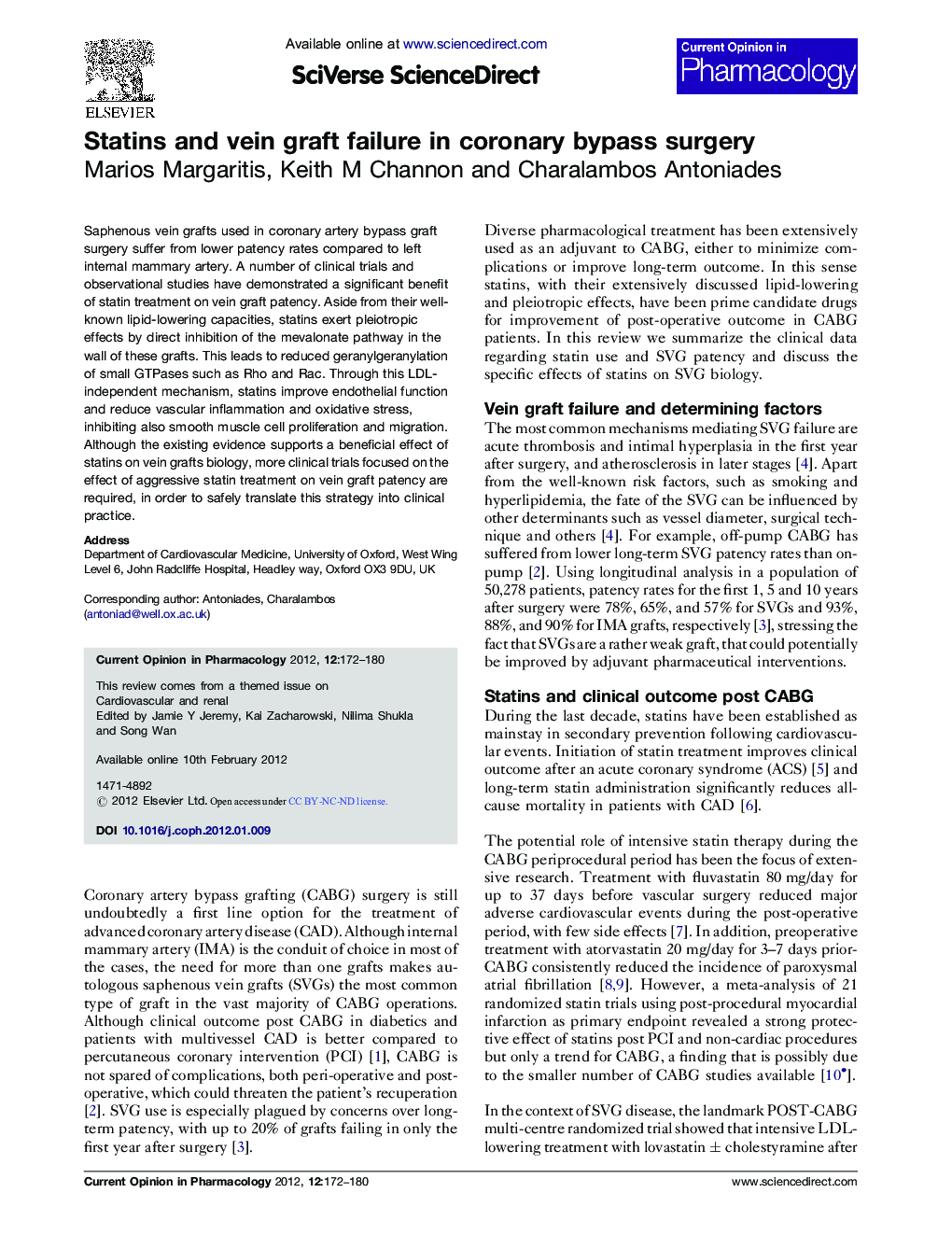| Article ID | Journal | Published Year | Pages | File Type |
|---|---|---|---|---|
| 5826433 | Current Opinion in Pharmacology | 2012 | 9 Pages |
Saphenous vein grafts used in coronary artery bypass graft surgery suffer from lower patency rates compared to left internal mammary artery. A number of clinical trials and observational studies have demonstrated a significant benefit of statin treatment on vein graft patency. Aside from their well-known lipid-lowering capacities, statins exert pleiotropic effects by direct inhibition of the mevalonate pathway in the wall of these grafts. This leads to reduced geranylgeranylation of small GTPases such as Rho and Rac. Through this LDL-independent mechanism, statins improve endothelial function and reduce vascular inflammation and oxidative stress, inhibiting also smooth muscle cell proliferation and migration. Although the existing evidence supports a beneficial effect of statins on vein grafts biology, more clinical trials focused on the effect of aggressive statin treatment on vein graft patency are required, in order to safely translate this strategy into clinical practice.
⺠Long-term vein graft patency is a major concern in CABG surgery. ⺠Statins improve vein graft patency in clinical trials and observational studies. ⺠Treatment with statins reduces LDL by inhibiting HMG-CoA reductase. ⺠Statins also inhibit the mevalonate pathway in the vascular wall. ⺠Statins improve endothelial function and reduce inflammation and oxidative stress in SVGs.
